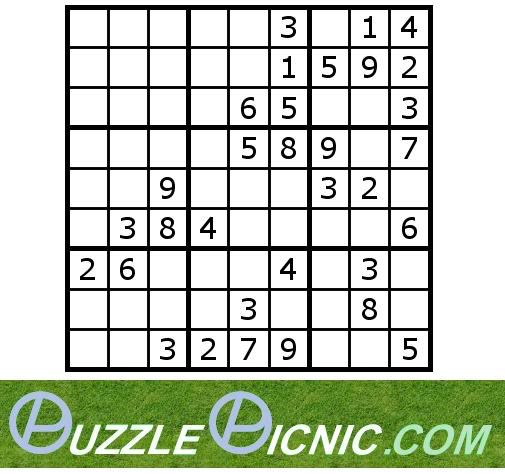You probably already counted on it. If you know the number pi by heart up 'til the 250th digit and you see all those sudokuists around you (on the train, in class, in your bed), then you can not help but wonder if it is possible. It turns out to be possible indeed.
When trying to squeeze him in a sudoku, pi did not make a scene. Other than with, for example, the number e (2.7182818284590...) or the square root of 2 (1.4142135623730...), the first zero in pi does not occur until the 32nd decimal. That is good news, because zero is not part of any sudoku puzzle and we have yet to discover a sudoku with less than 17 given digits that still has a unique solution. Pi even seems to give some breathing space.
I did feel I had to live up to my reputation and should at least try to use all the 32 digits before the first zero. Also here pi was very willing. Other than with a number like 5/33 (0.15151515...), equal digits are apart far enough often enough to neatly spread them over nine rows (eight would have been impossible).
Another potential danger is that you don't have enough different digits at your disposal. That's what you run into when you try to use 1/7 or 1/9. In a sudoku in which no 3 and no 6 occurs, any solution you might find can be turned into another solution by replacing every 3 by a 6 and every 6 by a 3. This contradicts the requirement that a valid puzzle has a unique solution. Luckily pi doesn't resist in this regard either.
Then the real puzzle came: I had to spread the digits over the 9x9=81 squares in such a way that it had exactly one solution, and not zero or one hundred twenty-nine. This one I found first:If you click it, you can solve it at PuzzlePicnic. I estimate the difficulty at 2 stars. Have fun!


No comments:
Post a Comment